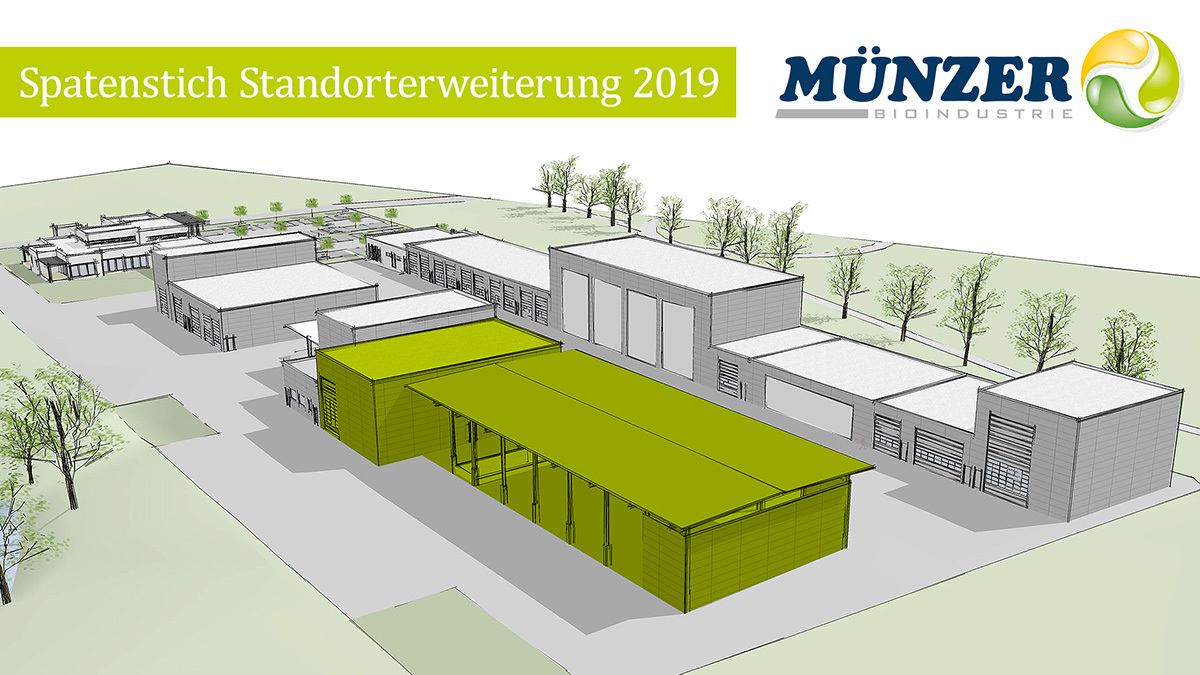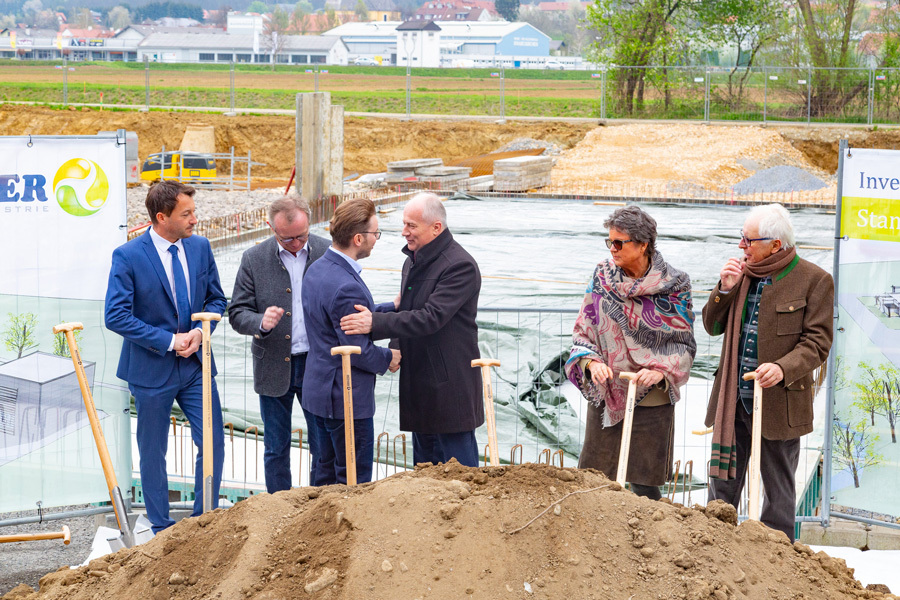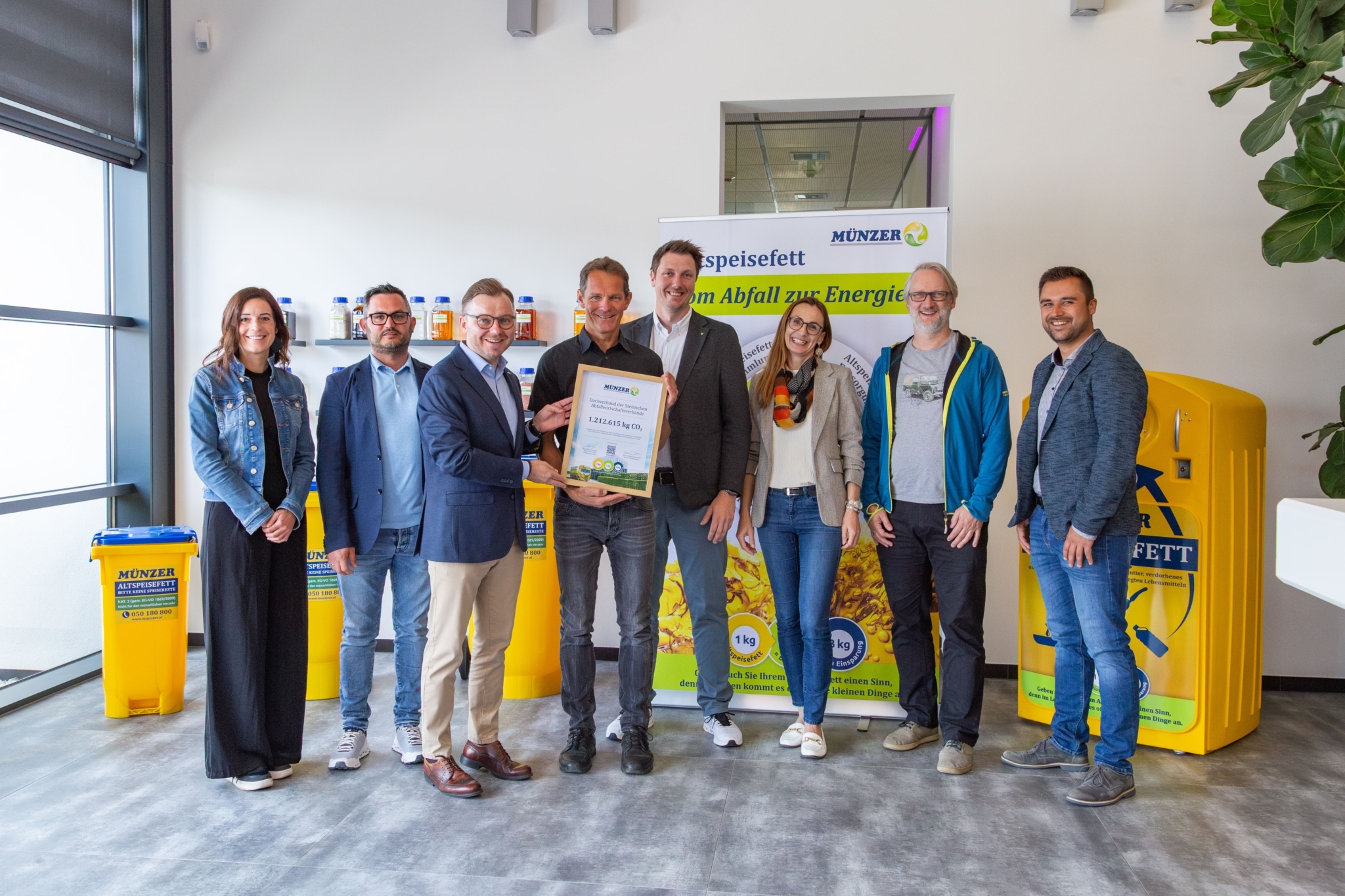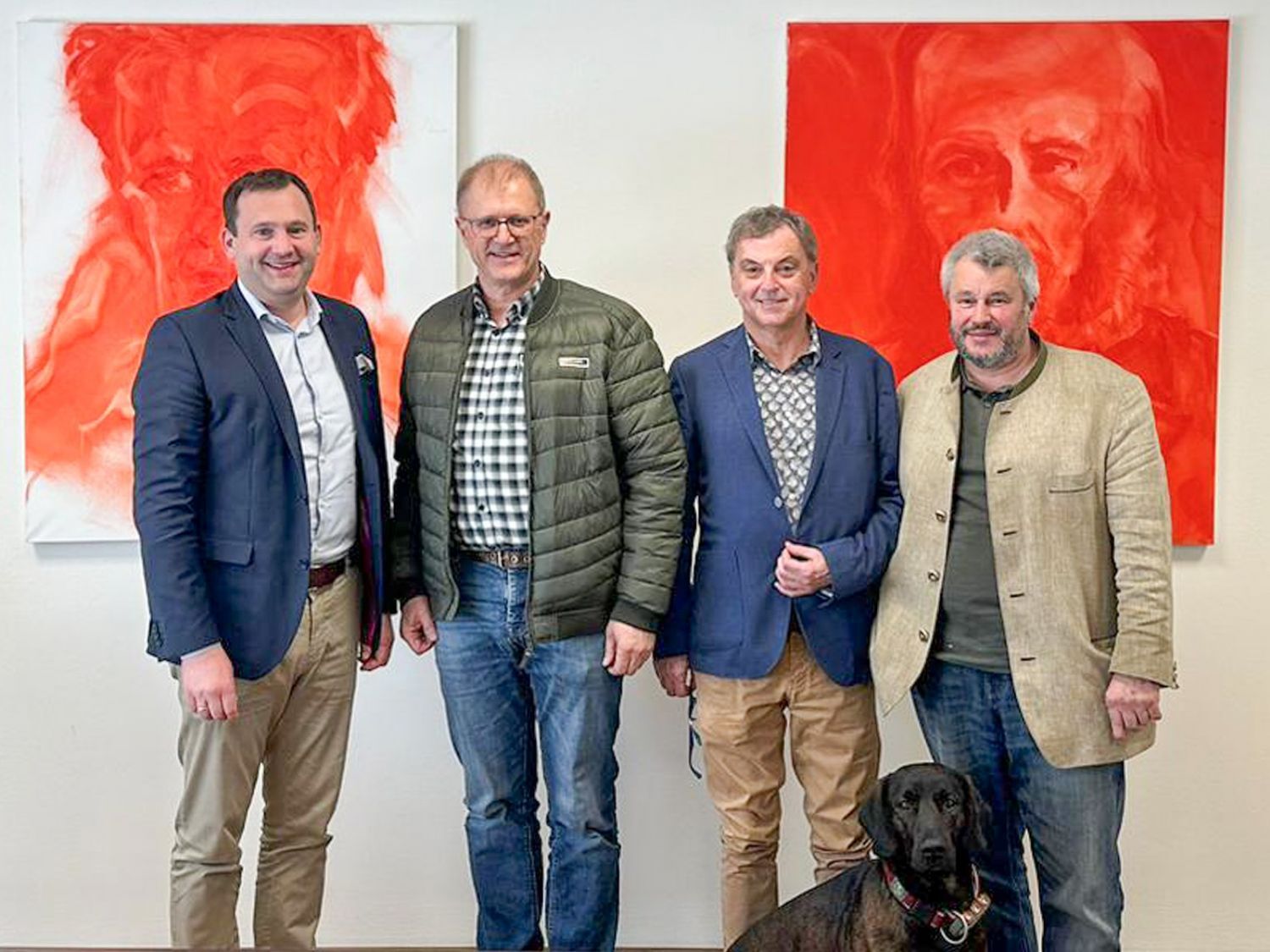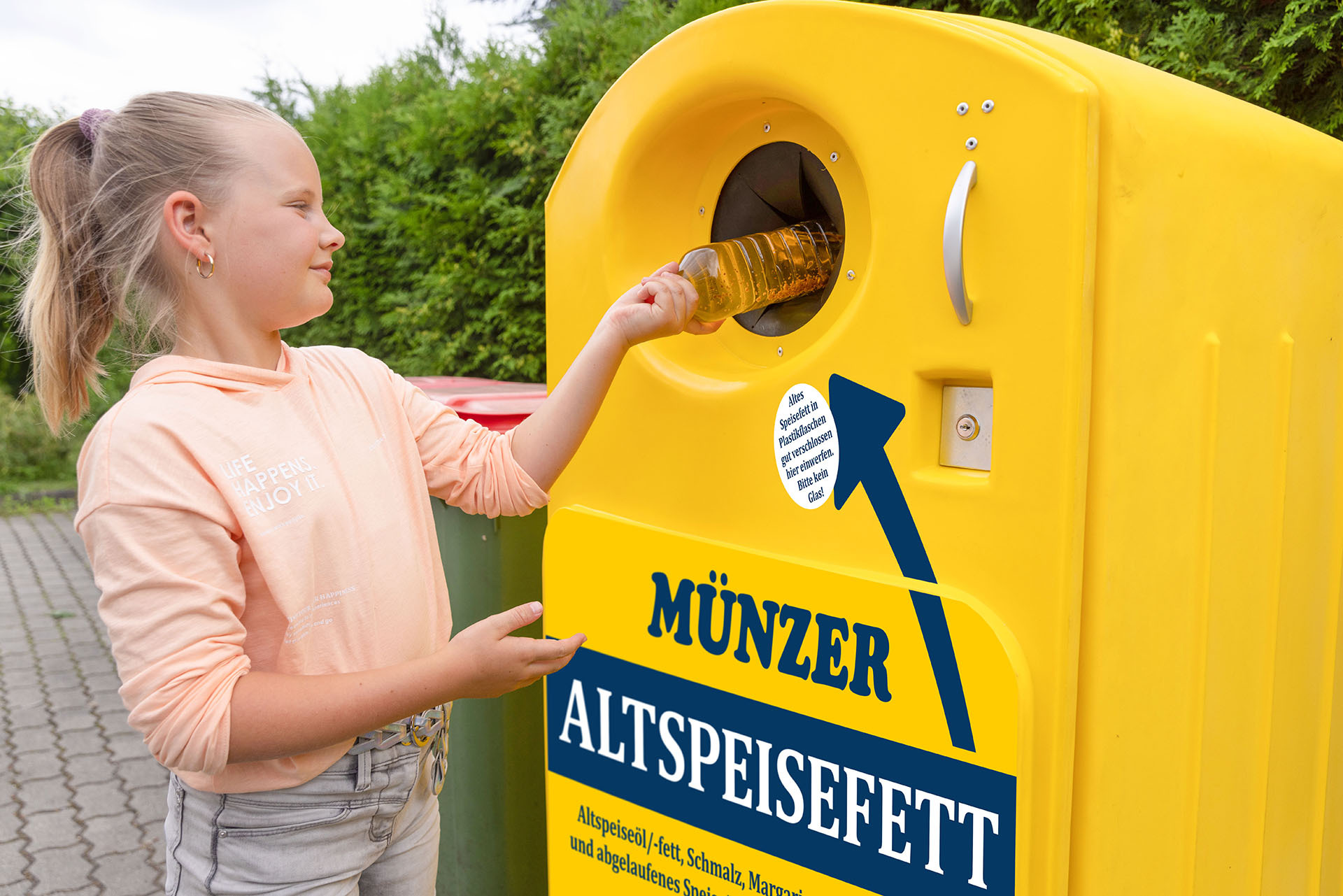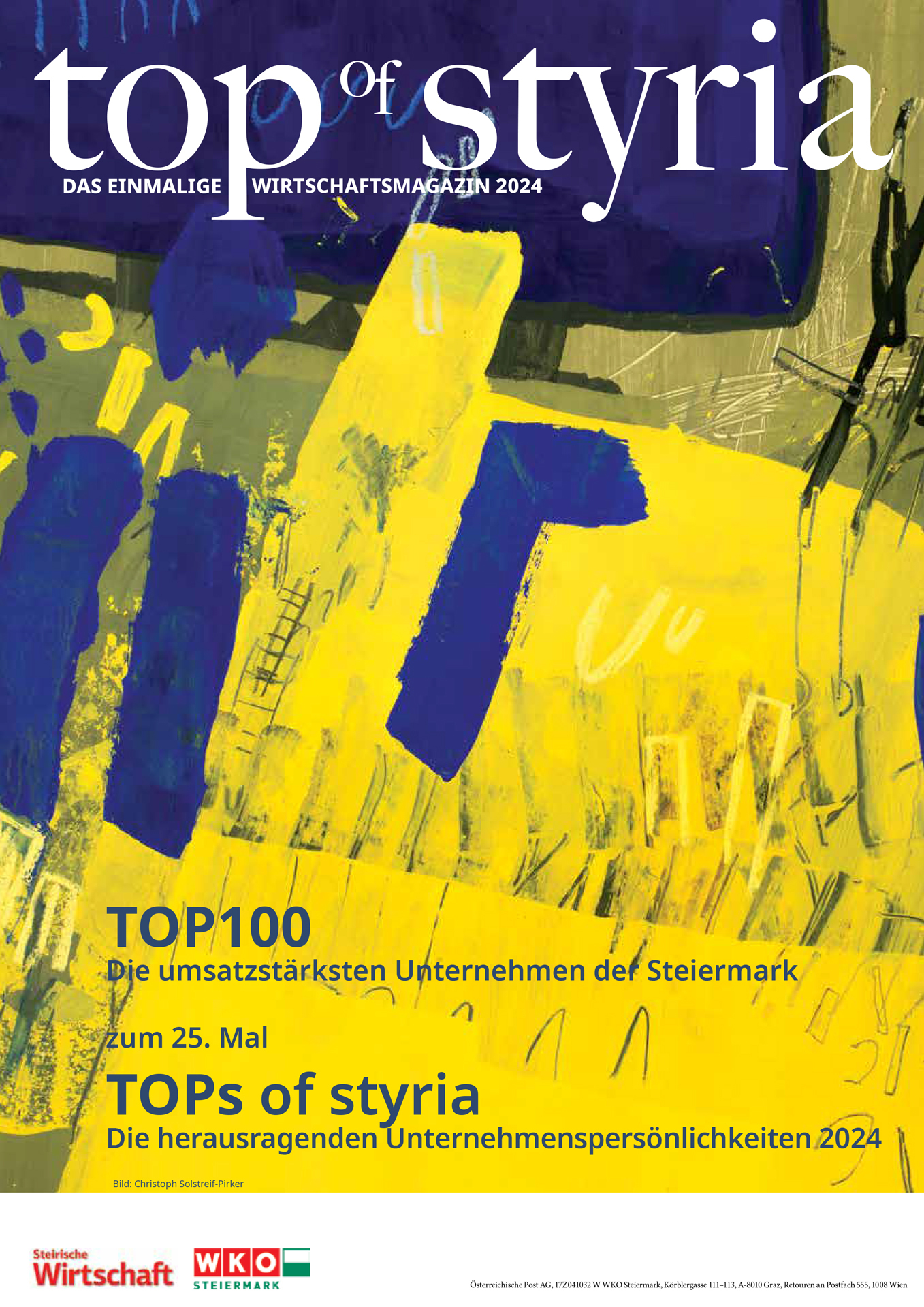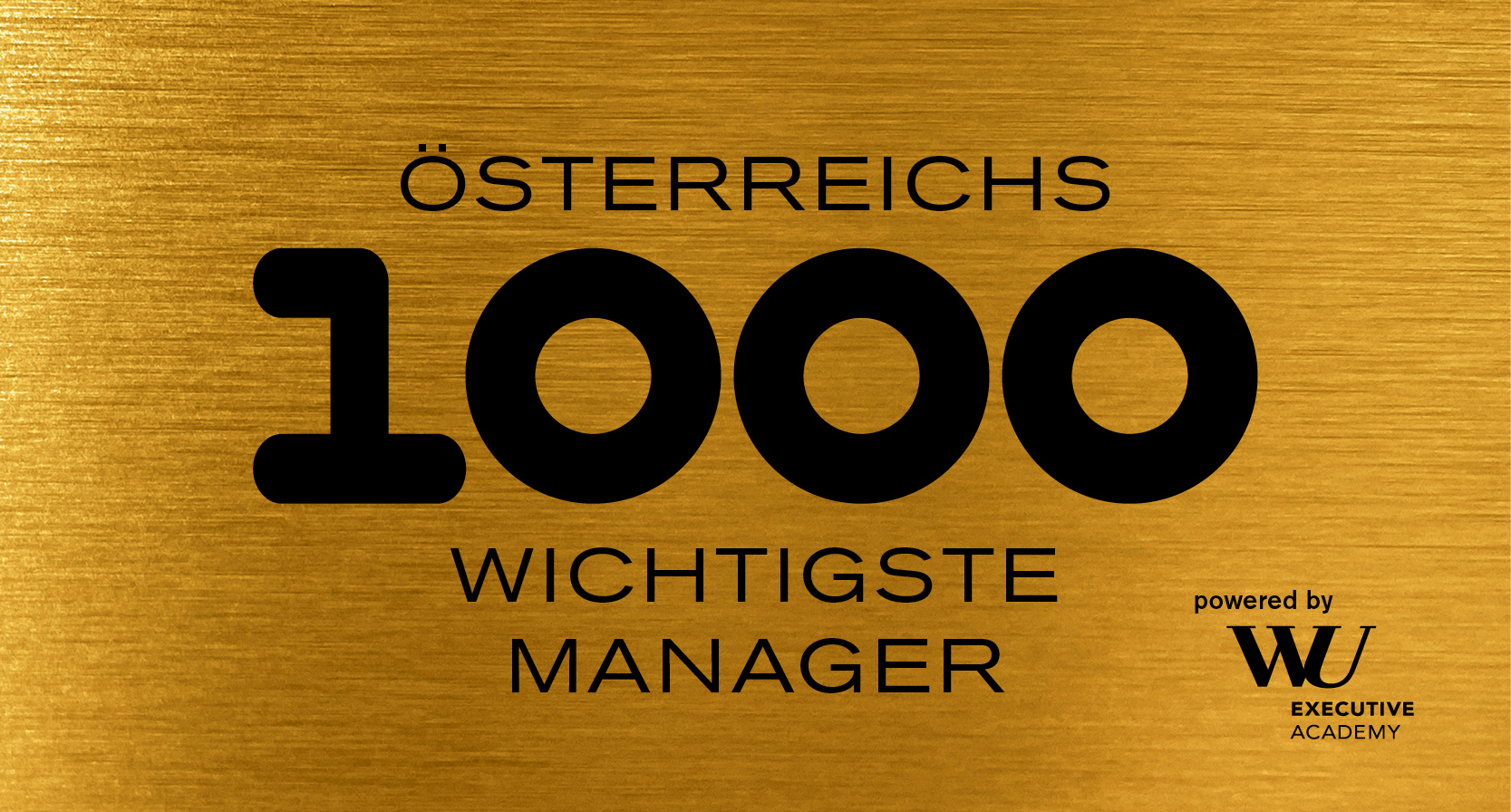Site expansion in Sinabelkirchen 2019
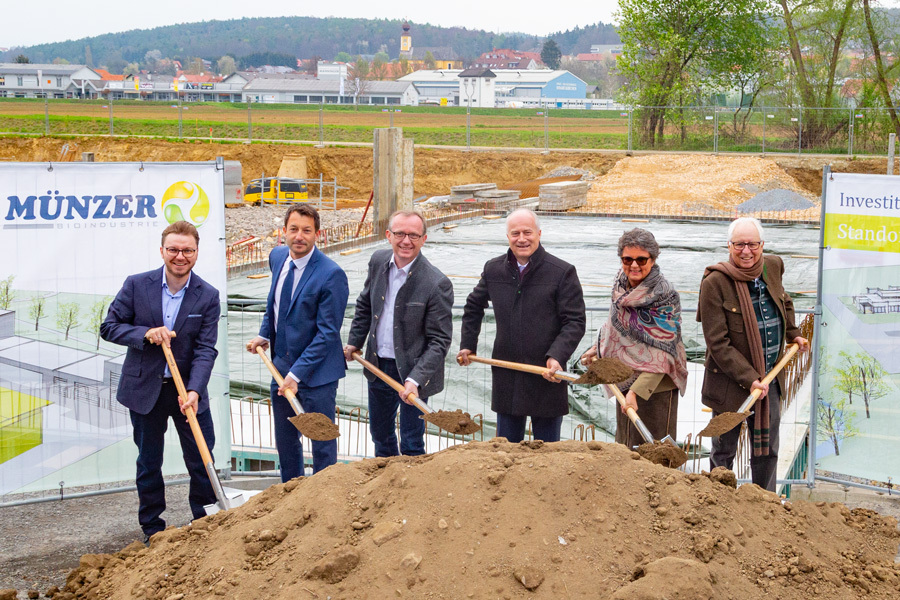
Investment in a strong location and a sustainable future
Münzer Bioindustrie investing over €3.5 million in the Sinabelkirchen site
(Sinabelkirchen, 13 April 2019) With today's ground-breaking ceremony, the family-owned company Münzer Bioindustrie GmbH has made a clear commitment to Styria and its economy. Representing an investment of over €3.5 million, a state-of-the-art interim storage facility for liquid waste is being built in addition to an extension for cable and e-waste recycling.
“The recent expansion of our company headquarters site signifies our commitment to investing in the sustainable development of our business. By doing so, we are not only safeguarding existing jobs, but also creating new ones,” declared Michael Münzer, Managing Partner of Münzer Bioindustrie GmbH together with his brother Ewald-Marco Münzer, on the occasion of today's ground-breaking ceremony.
The company is expanding its site with a tank farm including a coarse pre-cleaning facility for liquid waste. This pre-cleaning essentially involves an upstream sieve which traps coarse impurities such as stones, screws, fabric shreds, plastic, and the like. The wastewater is temporarily stored in elevated tanks before being processed for re-use. There is also a covered and paved area, including two basins, for the storage of various sludges and the delivery of other waste. Additional storage space is used for the company's other waste management operations, such as cable and e-waste recycling. “We are creating more storage space here so that we can respond even more effectively to the challenges our customers present to us,” reports Ewald-Marco Münzer.
“We have been a Styrian family business since 1991. This investment is a clear commitment to Styria and its industry,” Ewald-Marco Münzer says. “If you want a strong economic base, you have to invest in it. We rely on the quality and expertise of our employees. And we find them right here in our home region. Any business counting on cheap jobs in neighbouring countries is risking the stability and strength of our region.”
And Provincial Councillor Johann Seitinger, responsible for the Styrian government's “Lebensressort” Environment and Lifestyle department, adds: “Styria is a model region in terms of the circular economy, and is consistently pursuing innovation with a research and development rate of more than five percent. That makes the province a leader on the European stage – and the challenge is to expand that lead further. Processing waste oils and fats and refining them into palm oil-free biodiesel represents a sustainable and successful approach which has made it possible to reduce CO2 emissions and boost the value created in the province of Styria.” Thinking innovatively and acknowledging ecological and social responsibility alongside the need for economic growth has a strong and credible tradition in Styria, as Münzer Bioindustrie has long demonstrated. And as Seitinger points out, “'Green' has always been more than just a fashionable colour in these parts”. He concludes: “I am firmly convinced that a society that is aware of its responsibility to its environment creates added value for itself and for future generations.”
The company moved its headquarters to Sinabelkirchen in 2010. It has since then invested almost €20 million in Styria alone – just over €14 million at the Sinabelkirchen site and around €5 million at Gaishorn am See. The takeover of the existing biodiesel plant at the latter site in 2014 not only secured its survival and saved jobs, but also expanded it.
“In addition to the current expansion, we were also able to secure the neighbouring plot of land, giving us space for future growth. As a family business, we are used to thinking in terms of generations, not quarterly figures,” Ewald-Marco Münzer concludes.
